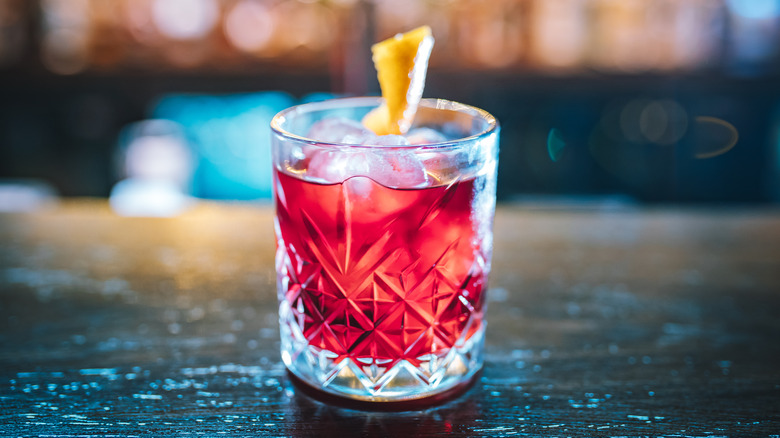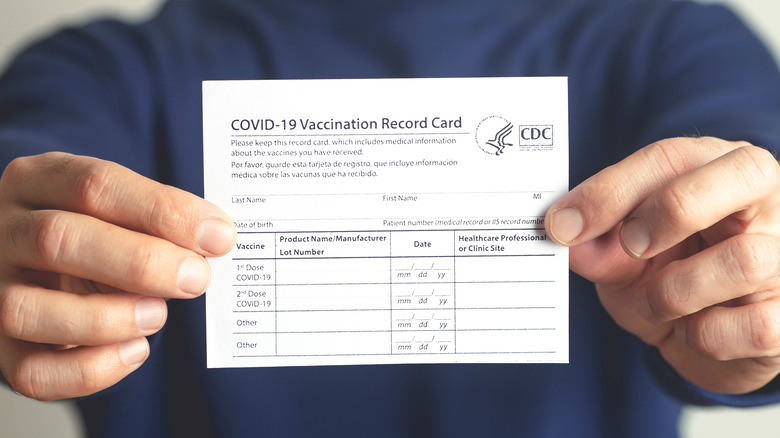Why COVID Precautions Could Cost Texas Restaurants Their Liquor License
The pandemic has thrown nearly everything we've been used to out of whack — the way we work, live, shop, and especially how our beloved restaurants, bars, and businesses operate. According to Our World in Data, about half of all Americans are fully vaccinated against COVID-19, a statistic that is definitely a key player in many bars and restaurants finally reopening for indoor dining and lessening safety restrictions.
And while most businesses are excited for a return to normalcy and are therefore complying with state and federal COVID regulations, some have taken matters into their own hands — and not all are faring well because of it. Simple mask signage or the encouragement of continued social distancing are definitely more harmless approaches, but certain Texas businesses started requiring proof that customers were, at the very least, partially vaccinated (via Eater Austin). Needless to say, it didn't go over very well with some members of the public, nor with everyone in the state's legislature.
Why requiring vaccination proof could cost Texas restaurants their liquor licenses
Texas restaurants Launderette and Fresa's were, until recently, requiring proof that customers had, at a minimum, been partially vaccinated in order for them to dine indoors (via Eater Austin). This action is in direct disobedience of Governor Greg Abbott's recently signed bill prohibiting such restrictions on customers (via Texas Tribune). The legislation also outlines the consequences of imposing those requirements.
Those consequences, for example, included Fresa's and Launderette being threatened with the possible loss of their liquor licenses. According to another article by the Texas Tribune, a Texas Alcoholic Beverage Commission spokesperson said neither restaurant had knowledge of the new law, which we can really only take at face value. Still, it should be noted that both eateries immediately complied with the bill and ceased asking customers for proof of vaccination status. They do require, however, that guests still wear masks while dining inside (when not seated at a table).
This just goes to show that the food and beverage industry is still reeling from Covid-19 and doing its best to stay up-to-date with local and national laws regarding safety — every restaurant has had to pivot on multiple occasions to find ways to make revenue and still keep health and safety as top priorities. But sometimes, bills like Governor Abbott's move fast, and it's a lesson for restaurateurs and business owners out there to stay current on what is okay and what could cost them dearly.

